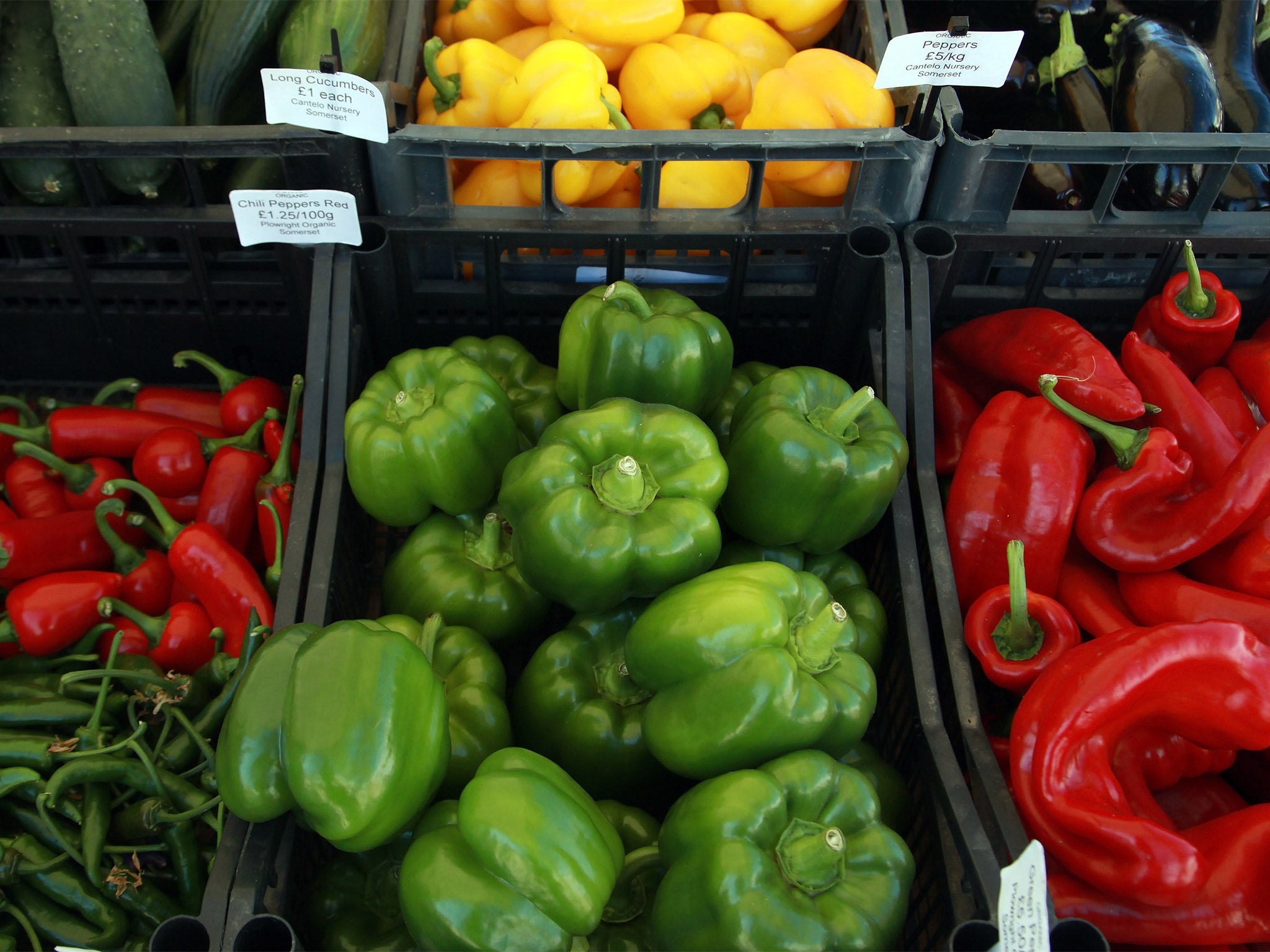Organic farming can feed the world if done right, scientists claim
Major new study suggests chemical fertilizers are not so vital

Your support helps us to tell the story
From reproductive rights to climate change to Big Tech, The Independent is on the ground when the story is developing. Whether it's investigating the financials of Elon Musk's pro-Trump PAC or producing our latest documentary, 'The A Word', which shines a light on the American women fighting for reproductive rights, we know how important it is to parse out the facts from the messaging.
At such a critical moment in US history, we need reporters on the ground. Your donation allows us to keep sending journalists to speak to both sides of the story.
The Independent is trusted by Americans across the entire political spectrum. And unlike many other quality news outlets, we choose not to lock Americans out of our reporting and analysis with paywalls. We believe quality journalism should be available to everyone, paid for by those who can afford it.
Your support makes all the difference.Organic farming is much more productive than previously thought, according to a new analysis of agricultural studies that challenges the conventional “biased” view that pesticide-free agriculture cannot feed the world.
The study says that organic yields were only 19.2 per cent lower, on average, than those from conventional crops and that this gap could be reduced to just eight per cent if the pesticide-free crops were rotated more frequently.
Furthermore, in some crops - especially leguminous plants such as beans, peas and lentils - there were no significant differences in yields, the researchers from the University of California, Berkeley found.
“In terms of comparing productivity among the two techniques, this paper sets the record straight on the comparison between organic and conventional agriculture,” said Claire Kremen, professor of environmental science, policy and management at Berkeley.
The study comes amid rising concerns that intense farming practices are damaging the environment, with the widespread use of nerve agent pesticides frequently blamed for declining populations of bees and other pollinators. Meanwhile, fertilisers are producing smaller and smaller increases in yields because they are now so effective they are difficult to improve upon.
“With global food needs predicted to greatly increase in the next 50 years, it’s critical to look more closely at organic farming because, aside from the environmental impacts of industrial agriculture, the ability of synthetic fertilizers to increase crop yields has been declining,” said Prof Kremen.
The researchers based their findings on a meta-analysis of 115 studies – a dataset three times greater than any previous such paper – comparing organic and conventional agriculture.
In addition to finding a smaller – 19.2 per cent – productivity difference between the two than previously calculated, the researchers also found that optimising organic productivity through different techniques could further reduce the gap.
Multi-cropping, or growing several crops together on the same field, would cut the yield difference to nine per cent, with crop rotation reducing the gap to eight per cent.
The study, published in the journal Royal Society B, suggested that the gaps could be even smaller than they have calculated because existing studies were “often biased in favour of conventional agriculture”.
“Our study suggests that through appropriate investment in agroecological research to improve organic management and in breeding cultivars for organic farming systems, the yield gap could be reduced or even eliminated for some crops or regions,” said the study’s lead author, Lauren Ponisio, a graduate student in environmental science, policy and management.
The researchers suggest that organic farming can be a very competitive alternative to industrial agriculture when it comes to food production.
“It’s important to remember that our current agricultural system produces far more food than is needed to provide for everyone on the planet,” said Prof Kremen.
“Eradicating world hunger requires increasing the access to food, not simply the production. Also, increasing the proportion of agriculture that uses sustainable, organic methods of farming is not a choice, it’s a necessity. We simply can’t continue to produce food far into the future without taking care of our soils, water and biodiversity,” she added.
Join our commenting forum
Join thought-provoking conversations, follow other Independent readers and see their replies
Comments